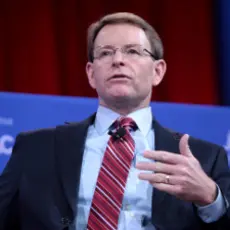I don't know about you, but the gathering of right-wing leaders for the Manhattan Declaration press conference last month is not my exactly my idea of "heaven" ... but then again, I'm not Chuck Colson:
There, in front of all those cameras and lights, Christian leaders lovingly, winsomely, and firmly took a stand. I will never forget the picture. I stood between Archbishop Wuerl of Washington and Cardinal Rigali, Archbishop of Philadelphia. I looked over at Tony Perkins of the Family Research Council, Jim Daly of Focus on the Family, and Ron Sider, president of Evangelicals for Social Action.
To my left was the brilliant Bishop Harry Jackson, a man who has mobilized African American churches in the District to oppose gay “marriage.” And there was Fr. Chad Hatfield, chancellor of St. Vladimir’s Orthodox Seminary. I was missing only one man, my dear friend, the late Richard Neuhaus.
It was a foretaste of what we’re all going to see in heaven, when those of us who can truly trust the Bible, who love Christ with all our hearts, minds, and souls, are re-united in the presence of our gracious and loving God.
Colson claims that while some are attempting to paint the Declaration as a political manifesto of the Religious Right "nothing could be further from the truth" because "this document is a clarion call to reach out to the poor and the suffering."
Really? Because when I read it [PDF], most of what I see is a call to arms in the culture war over marriage, choice, and religion. In fact, that Declaration itself all but admits that while "concern for the poor and vulnerable" is important, it is not the focus of the manifesto itself:
While the whole scope of Christian moral concern, including a special concern for the poor and vulnerable, claims our attention, we are especially troubled that in our nation today the lives of the unborn, the disabled, and the elderly are severely threatened; that the institution of marriage, already buffeted by promiscuity, infidelity and divorce, is in jeopardy of being redefined to accommodate fashionable ideologies; that freedom of religion and the rights of conscience are gravely jeopardized by those who would use the instruments of coercion to compel persons of faith to compromise their deepest convictions. Because the sanctity of human life, the dignity of marriage as a union of husband and wife, and the freedom of conscience and religion are foundational principles of justice and the common good, we are compelled by our Christian faith to speak and act in their defense.






